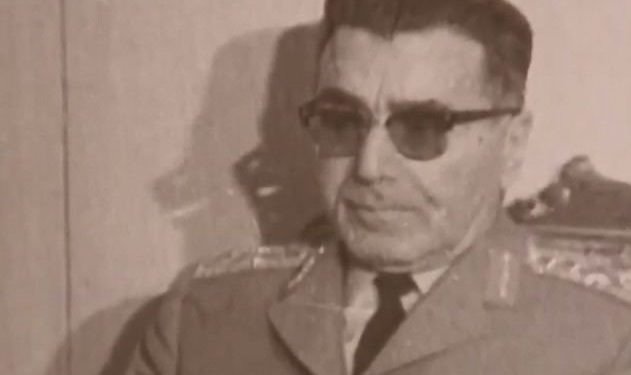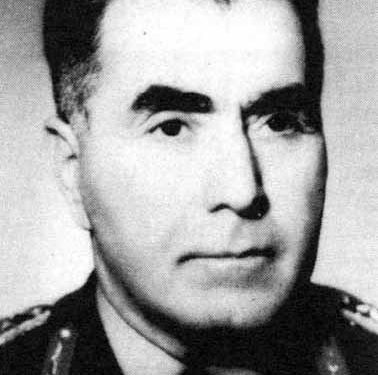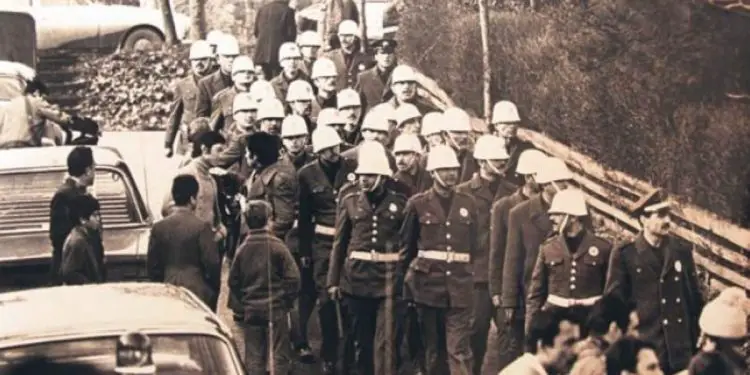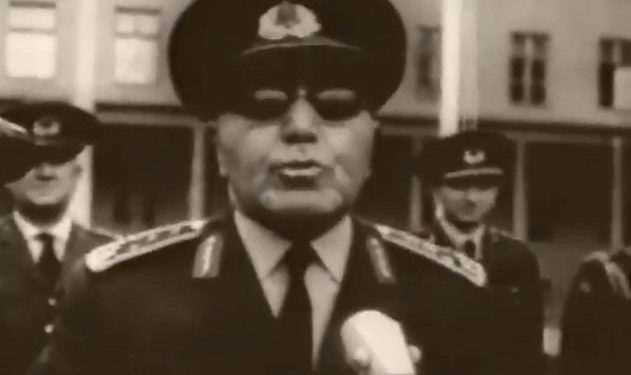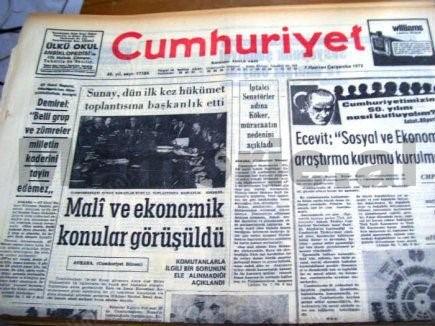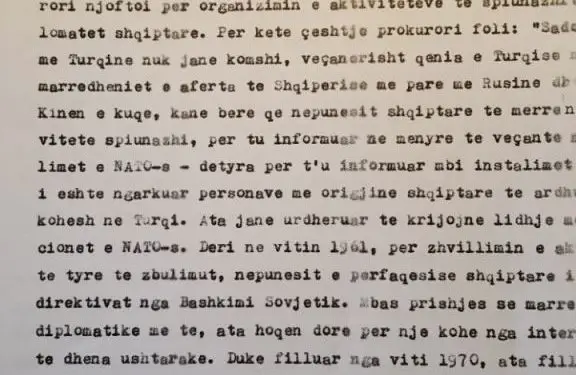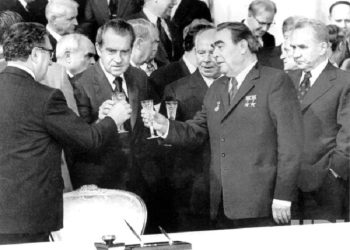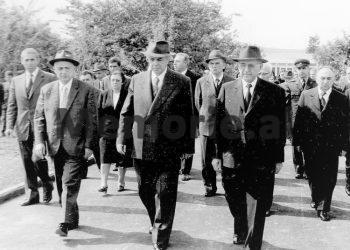Dashnor Kaloçi
Memorie.al publishes an archival document “Top secret” with the secret correspondence of the Ministry of Foreign Affairs with the Albanian embassy in Ankara in 1973, regarding the activity of two Albanian Intelligence agents, Nevzat Koka and Lefter Sava, whom Turkey accused that they had gathered secret information about NATO missile installations, where among other things it is stated: “Nevzat Koka through the butcher, Ramazan Bekollari, who in 1961 met the Albanian diplomat Gaqo Mborja and his recommendation also with the consul, Lik Seiti. Lefter Sava, on the other hand, received instructions from diplomats, Mehmet Çaka and Simon Qirici “.
The arrest a few months ago of the American pastor Andrew Brunson who served for about two decades in Turkey and who was accused of “collaborating with the coup group that organized the coup in 2016”, or that of two Greek soldiers, Angelos Mitroidis and Demetrios Kouklatzis, who has been accused of spying for Turkey, does not appear to be a sporadic case with the Ankara government. Especially when they happened after coups which were not very rare in Turkey. Such “problems” official Ankara had constantly even before the ’90s with almost all its neighbors and countries close to it, without excluding here the communist Albania of Enver Hoxha, where many times its diplomats were accused of supporting, encouraging and financed various agents recruited in the ranks of Albanian emigration.
This, among other things, is made known by some archival documents belonging to the early 1970s, when the Turkish secret services, MIT and especially its armed wing or as it was otherwise known, the “Gray Wolves” (Counter-Discovery of Turkey) , which dealt and operated mainly on the intelligence activity of the communist countries of Eastern Europe), arrested and brought before the military court, two Turkish citizens of Albanian origin (Nevzat Koka and Lefter Sava), who were accused of espionage activity to the detriment of Turkey , conducting propaganda and gathering secret information on NATO missile installations in Turkey. Not only that, but they were accused of carrying out espionage activities to the detriment of Turkey’s neighbors, such as Greece, Yugoslavia and the Soviet Union.
The arrests of Koka and Sava took place shortly after the coup that toppled the Turkish government in 1971 (after months of violence and unrest in the country), where Army General Memduh Tagmac issued an ultimatum to Prime Minister Sulejman Demirel, forcing him to resign. left the post. In this atmosphere, the trial against the two Albanian emigrants took place, which caused a great commotion, as it was regularly covered by the local press, where some of the largest newspapers, such as “Xhumhurjet”, or “Aksham”, covered many court hearings on their pages, citing most of the indictment of the military prosecutor, Sirri Akbai, who made communist Albania responsible by accusing some of the diplomats with concrete names. Albanians accredited in the Ankara representation, such as: Gaqo Mborja and Mehmet Çaka (senior cadre of Albanian Intelligence who at that time was led by Jonuz Mersini), or the Consul General himself, Lik Seiti.
At the end of these articles, Turkish newspapers also quoted the sentences given by prosecutor Akbai for the two defendants “agents of Communist Albania”, with death for Nevzat Koka and with 5 years in prison, for Lefter Sava. If we consider the past and the activity of two Albanian emigrants settled in Turkey since the period of the Zog Monarchy, at first sight it seems that the sentences requested by the Turkish military prosecutor were given in reverse. This is because, according to some very reliable sources (former cadres of the Albanian Intelligence), Nevzat Koka was an unknown, while Lefter Sava, was an “activist” and a well-known name of the Albanian diaspora in Turkey, (employee of the Association “Albanian-Turkish Brotherhood”) present at all the festivities or various receptions given by the Albanian Embassy in Ankara.
Likewise, Sava was one of the main leaders of the Albanian communist diaspora in Turkey, “fighting” against the anti-communist diaspora group in Turkey, led by Qazim Prodan. Based on these, Lefter Sava was a very favorite exponent of the communist regime in Tirana, who was called and came to official holidays or various anniversaries that took place in Albania. But for more related to these, let us know these documents that are published in full and for the first time exclusively for Memorie.al
(Along with the facsimiles of archival documents, we are also publishing some photos of the Turkish newspapers “Xhumhurjet” and “Aksham” as well as those of the military and generals who carried out the coup in 1971).
Ministry of Foreign Affairs
T i r a n ë
Today’s entire Turkish press on the front page in large letters and accompanied by photos taken from the courtroom writes about the prosecutor’s claim against the accused Nevzat Koka and Lefter Sava as “agents of Albania” for high treason against “Turkey and for espionage operations against Greece, Yugoslavia and the Soviet Union.”
The newspaper “Xhumhurjet”, among others, writes: “The prosecutor announced the organization of espionage activity by Albanian diplomats. On this issue, the prosecutor said: “Although Albania and Turkey are not neighbors, especially Turkey’s presence in NATO and Albania’s close relations with Russia and now with red China, have made Albanian officials engage in espionage activities, for to be informed about NATO installations, the task of being informed about NATO installations was entrusted to persons of Albanian origin who had come there for a long time to Turkey. They have been ordered to liaise with NATO institutions. Until 1961, for the development of their Intelligence activity, the officials of the Albanian representations received the directives from the Soviet Union. After severing diplomatic relations with him, they temporarily gave up interest in military intelligence. Beginning in 1970, they became interested in the names and addresses of persons of Albanian origin in the Turkish army. In order to implement this activity, they made important preparations “.
“Aksham” newspaper, among others, writes: “A military prosecutor, Sirri Akbai, read in court the indictment consisting of 25 pages. For the defendant Nevzat Noka, according to Law 56/1 of the Turkish Criminal Code, Articles 133/2 and 12, who are accused of “betrayal of national defense”, requested the death penalty. The military prosecutor on page 8 spoke in more detail about the implementation of intelligence activity by communist Albania. Here below we are listing these activities ”
- Propaganda activity.
- Activity to learn military and political secrets about Turkey.
- Intelligence activity against Greece.
The indictment further details the espionage activity. After briefly talking about the biographical data of Nevzat Koka, the newspaper writes:
The defendant met the employee of the Albanian embassy, Gaqo Mborja, in 1961 through the butcher Ramazan Bekollari. Through Gaqo Mborja he became acquainted with the Albanian Consul, Lik Seiti. He later received instructions from the two men to inquire about the missile system in Turkey.
As for Lefter Sava, the newspaper writes:
In 1970 he became an employee of the association “Albanian-Turkish Brotherhood” and there he developed communist propaganda for Albania. For this he has received instructions from Mehmet Çaka and Simon Qirici. “At the same time, he carried out espionage activities against our neighbors, the Soviet Union and Greece.”
The newspaper continues: “The military prosecutor based on the law of the Criminal Code no. 133 and 80 for the development of espionage activity in favor of a foreign state against other foreign states, asked for Lefter Sava to be sentenced to 5 years in prison.
The newspapers report that the next hearing was postponed to May 22, 1972.
Ankara on 12 May 1972 Embassy
……………………………………………………………………………………………………………………
Second Directorate Tirana, on May 18, 1972
MEETING INFORMATION
On May 18, 1972, Comrade Musin Kroi received the Charge d’Affaires a.i. of Turkey, Arbak, at his request.
Arbak said he requested this meeting following the first conversation he had with Comrade Musin. He noted that after that conversation he immediately sent the relevant information to the center and that he now has the response of his Ministry regarding the issues raised by Comrade Musin. Arbak said he has received such a response that can be considered positive. Below ay said:
From what I have been informed the issue we talked about is not a new case. As a result of the investigations carried out by the Turkish authorities against Lefter Sava and Nazmi Koka, they were arrested on August 9, 1971 for hostile espionage activity. During the investigation, they admitted that they were in a relationship with Simon Qiric. Now their case has been presented to the military court because of its nature and the trial continues.
As for the newspapers, they wrote because the court organized a new hearing. In fact, the press has never been a campaign against Albania and has not crossed the border of daily news. It is a fact that the newspapers did not mention this issue again, after the day when the trial took place. It is known that in our country the courts and the press are free and independent, so an intervention in this matter by the government is impossible. In addition, our MFA does not agree with your extreme view that the propaganda campaign is directed against Albanian diplomats in Turkey and that they are the object of this campaign.
The good and friendly relations that exist between our two countries, in fact create the atmosphere of an anti-Albanian propaganda in our country.
Taking the floor, Comrade Musin told the charge d’affaires that he took note of what he had said. He told her that our point of view is what was made known in the previous meeting, and that it was presented to the Secretary General of the Turkish MFA by our ambassador there, Ulvi Lulo, that it is not good to take the bodies under protection. of the press for what they have written
against our country and our diplomats, driven by those forces that want to wedge into the friendly relations that exist between our two countries.
Comrade Musin mentioned to Arabak that in the spirit of the principled policy of our government and friendly relations, our country has supported Turkey in the Cyprus issue when many other countries took a stand against it, and that we have always worked for the development of friendly relations. between two places. The above-mentioned issue will not hinder the good development of these relations and those forces that want to hinder these relations will not achieve the goal. In this matter, as stated by the person in charge of work, there is a common desire and will.
Arabak thanked for the words of Comrade Musin. He said that this case has been made clear and at the same time here to you, as well as in Turkey by the Secretary General of the Ministry of Foreign Affairs, Ulvi Lulo. He said that they appreciate the friendly attitude of our country even in their difficult moments and that they also start from the desire to further develop friendly relations between the two countries. Arabak reaffirmed what has happened in the past, and that it is over, and that this cannot be an obstacle to the development of relations between the two countries. He noted that even those who think that those forces that try to create difficulties in relations between the two countries, will not achieve their goal.
From Arabak’s response, it seems that our intervention has had an effect and that the Turkish government seems to have intervened so that this issue does not go further./Memorie.al




